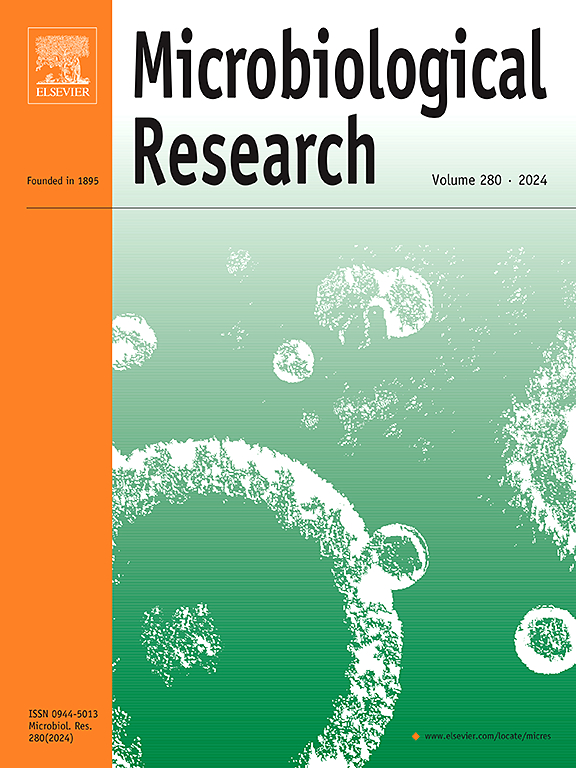Illuminating prospects of probiotic Akkermansia muciniphila in intestinal inflammation and carcinogenesis
IF 6.9
1区 生物学
Q1 MICROBIOLOGY
引用次数: 0
Abstract
Akkermansia muciniphila (A. muciniphila) is portrayed as an advantageous enteric bacterium with a particular property of mucin utilization. Emerging data suggest A. muciniphila can reshape gut chronic inflammation, enhance intestinal epithelial tight junctions, and sensitize toll-like receptors 2 (TLR2) and TLR4 to restrain the infiltrating cytotoxic T lymphocytes and macrophages. As well, analogous role is detected in surface A. muciniphila-coated pili, outer-membrane protein Amuc_1100, β-galactosidase enzyme Amuc_2172, and extracellular vesicles. We rendered insights into empirical evidence on molecular mechanisms mediated by A. muciniphila in inflammatory bowel disease and intestinal cancers which include colitis-associated colorectal cancer and colorectal cancer. We discussed its potential preventive and therapeutic benefits on immune checkpoint inhibitors therapy. A. muciniphila supplementation through diet, probiotics-prebiotics, fecal microbiota transplantation, and certain drugs, would be a promising therapeutic strategy. Nevertheless, data profiles decipher A. muciniphila is linked to multiple sclerosis and Parkinson's disease occurrence and evolvement. Thus, how to avoid the deleterious effects triggered by A. muciniphila warrants further exploration. It ought to be considered to conduct a critical and cautious analysis of the next-generation beneficial microbe manipulation ahead of clinical application.
益生菌嗜黏液阿克曼氏菌在肠道炎症和癌变中的前景
嗜粘杆菌(a.m uiniphila)被描述为一种有利的肠道细菌,具有利用粘蛋白的特殊性质。新研究表明,嗜粘杆菌可以重塑肠道慢性炎症,增强肠上皮紧密连接,并使toll样受体2 (TLR2)和TLR4致敏,以抑制细胞毒性T淋巴细胞和巨噬细胞的浸润。类似的作用也被发现存在于粘杆菌表面的菌毛、外膜蛋白Amuc_1100、β-半乳糖苷酶Amuc_2172和细胞外囊泡中。我们对嗜粘液芽胞杆菌介导的炎症性肠病和肠道癌症(包括结肠炎相关的结直肠癌和结直肠癌)的分子机制进行了实证研究。我们讨论了它在免疫检查点抑制剂治疗中的潜在预防和治疗益处。通过饮食、益生菌-益生元、粪便微生物群移植和某些药物补充嗜粘杆菌将是一种很有前途的治疗策略。然而,数据分析显示嗜粘液芽孢杆菌与多发性硬化症和帕金森病的发生和进化有关。因此,如何避免嗜muciniphila引发的有害影响值得进一步探索。应该考虑在临床应用之前对下一代有益微生物操作进行批判性和谨慎的分析。
本文章由计算机程序翻译,如有差异,请以英文原文为准。
求助全文
约1分钟内获得全文
求助全文
来源期刊

Microbiological research
生物-微生物学
CiteScore
10.90
自引率
6.00%
发文量
249
审稿时长
29 days
期刊介绍:
Microbiological Research is devoted to publishing reports on prokaryotic and eukaryotic microorganisms such as yeasts, fungi, bacteria, archaea, and protozoa. Research on interactions between pathogenic microorganisms and their environment or hosts are also covered.
 求助内容:
求助内容: 应助结果提醒方式:
应助结果提醒方式:


